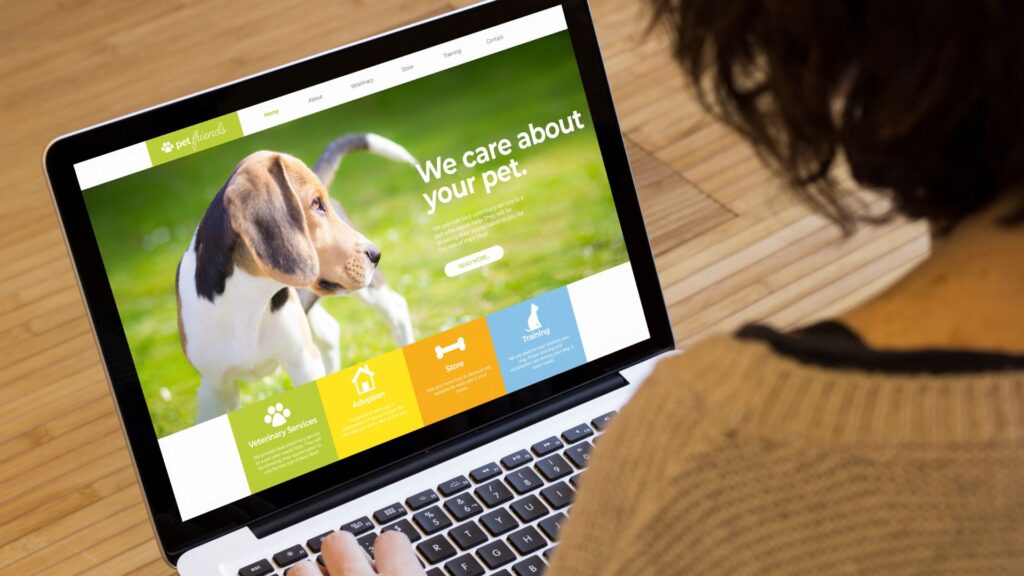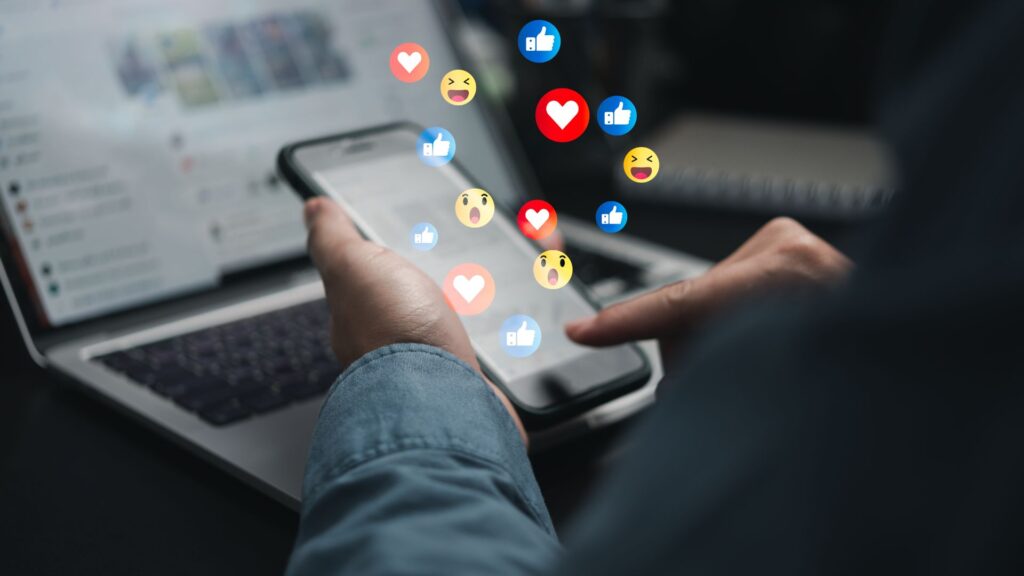Social media is everywhere — it’s where people hang out, share stories, and discover new brands. For many small businesses, Facebook, Instagram, TikTok, and LinkedIn feel like the easiest way to get noticed. And yes, social media is powerful. It helps you build visibility, engage with audiences, and showcase your brand personality. But when it comes to social media and website for lead generation, relying only on social platforms isn’t enough to secure long-term growth.
But here’s the truth: if you rely only on social media to generate leads, you’re leaving your business exposed. Social media platforms are like rented space — you don’t own them, you just borrow them. And as with anything rented, the rules can change anytime.
If you want a reliable, long-term way to generate leads, your business needs a website. Think of your website as your digital home base — the one space you fully own and control.
The Problem With Relying Only on Social Media
You Don’t Own the Platform
When you build your lead generation strategy on social media alone, you’re building on borrowed land. Your Facebook page, Instagram profile, or TikTok account could be suspended, hacked, or limited overnight. And when that happens, you lose not just your followers but also your ability to generate leads.
A website, on the other hand, belongs entirely to you. No one can take it down because of a new policy or algorithm tweak.
Algorithm Dependency
Have you noticed how sometimes your posts get thousands of views, and other times barely anyone sees them? That’s because social media platforms are controlled by algorithms that decide who sees what.
This unpredictability makes it nearly impossible to rely on social media alone for consistent leads. A website, however, allows you to control your traffic sources, track results, and create consistent funnels for lead capture.
Limited Buyer Intent
Most people go on social media to relax, laugh, or connect — not to shop. While you can grab attention with creative posts, it’s often not enough to convert that attention into a lead.
On a website, it’s different. Visitors arrive with intent. They’re searching for solutions, browsing your services, or looking for more details about your business. That makes them far more likely to become leads.
Why a Website Is Essential for Lead Generation

Your Digital Home Base
Your website is the only space online that you truly own. It’s where all your marketing efforts should point back to — whether from social media, ads, email, or referrals.
Think of social media as the billboards scattered around town. They get attention, but eventually, you want people to step into your “store.” That store is your website.
Learn more about Why Every Business Needs a Website in 2025
Builds Credibility and Trust
Let’s be honest — would you fully trust a business that only has a Facebook page but no website? For many customers, having a website is the sign of a legitimate, professional business. Social media is a good start, but it’s not enough on its own. A website takes things further by showing that your business is established, trustworthy, and serious about serving customers.
Your website acts as your online office. It showcases your services, testimonials, and brand values — giving prospects confidence to trust you with their business.
Lead Capture and Conversion Tools
Social media is great for interaction, but it’s limited when it comes to conversion. You can post, you can engage, but you can’t fully control the journey.
A website lets you:
- Add lead capture forms
- Offer free downloads or lead magnets
- Use pop-ups or chatbots to engage visitors
- Guide prospects with dedicated landing pages
These tools turn casual visitors into actual leads — something social media alone simply can’t do as effectively.
Learn more about 10 Must-Have Features for a Small Business Website in 2025.

SEO and Discoverability
Here’s another big reason: Google.
When people need solutions, they don’t always go to Facebook — they go to Google. Without a website, your business won’t appear in those search results. That means you’re invisible to potential leads who are actively looking for what you offer.
A well-optimized website allows you to rank for relevant searches, bringing in high-quality, intent-driven traffic — the kind of visitors who are more likely to convert into leads.
Learn more about 10 Different Kinds of Traffic That Drive Lead Generation.
How Social Media and Websites Work Together
The smartest approach isn’t about choosing one or the other — it’s about combining both. Social media is where you capture attention and build relationships. Your website is where you convert that attention into measurable leads.
Here’s how they complement each other:
- Social Media: Builds awareness, drives engagement, and reaches new audiences.
- Website: Converts that traffic into leads with forms, CTAs, and landing pages.
It’s not “social media vs. website.” It’s “social media + website.” Together, they create a complete, reliable funnel.
Conclusion
Relying solely on social media for leads is like trying to build a house on rented land — you’re never in full control. Platforms change, algorithms shift, and accounts can be restricted.
A website, however, is yours. It builds credibility, captures leads, ranks on search engines, and gives you complete control over how visitors engage with your business. When you combine social media and website for lead generation, you get the best of both worlds: visibility from social platforms and reliable conversions from your site.
If you want long-term, sustainable growth, social media should be your gateway — but your website should always be the destination.






